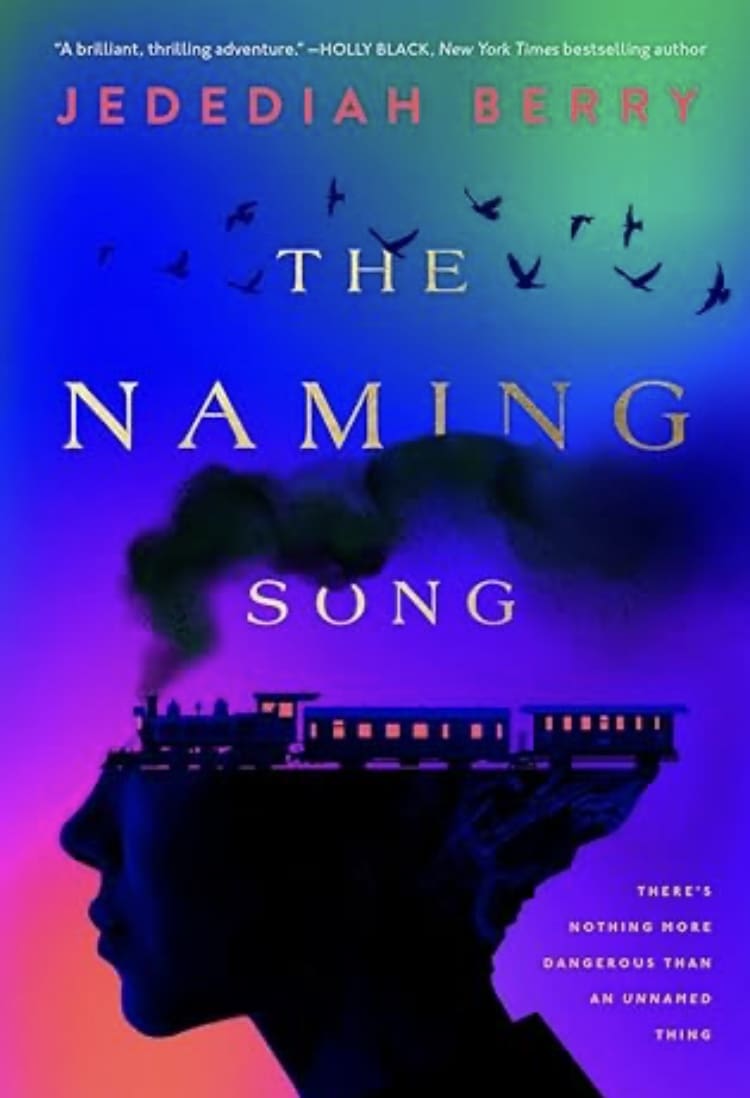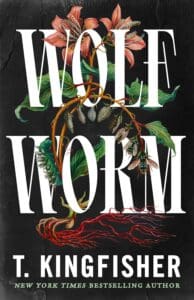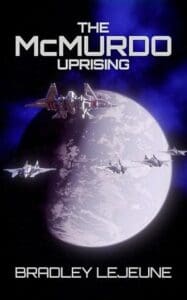
Synopsis
In a world where words are power, there is nothing more dangerous than an unnamed thing.
When something fell from the something tree, all the words went away. And the world changed.
Monsters slipped from dreams. The land began to shift and ghosts wandered the world in trances. Only with the rise of the named and their committees―Maps, Ghosts, Dreams, and Names―could humanity stand against the terrors of the nameless wilds. Now, they build borders, shackle ghosts and hunt monsters. The nameless are to be fought, and feared.
One unnamed courier of the names committee travels aboard the Number Twelve train, assigning names to the people and things that need them. Her position on the train grants her safety in a world that otherwise fears her. But when she accidentally pulls a monster from a dream, and attacks by the nameless rock the Number Twelve, she is forced to flee. Accompanied by a patchwork ghost, a fretful monster, and a nameless animal who prowls the borders between realities, she sets out to look for her long-lost sister.
Her search for the truth of her own life opens the door to a revolutionary future―for the words she carries will reshape the world.
Review
The Naming Song is literary fantasy at its finest. It’s a beautiful ode to the power of words, packed with meaning — a ballad not to be missed.
I went into this story with high hopes. As a writer, I’m a logophile. I love language and I’m fascinated by the depth that a single sentence can plunge. Words give substance and purpose and shape to our lives. So to spend time in the world of The Naming Song, where words are divined and spoken into existence, and each new word has the magical ability to literally reshape reality — it spoke to everything I love about the wonder of storytelling.
The protagonist is a speaker of words. When she’s given a new word, it’s her job to journey with it so that she can speak it at the right time. Once she’s spoken it into existence, the concept and meaning that belongs to that word will enter the world with it, and reality reforms to incorporate it — the world is literally changed with each new word that’s added to it. What a profound and stunning magic system! It’s philosophically rich and fascinating to read. I loved seeing the world build around me as new words emerged. And I especially loved how rich it felt, and how layers were progressively added as the language of the book expanded with each new spoken word.
In terms of characters, the protagonist is endearing and multi-faceted. She’s an outsider, not quite conforming to the system that keeps everything named. But there’s a reluctance about her rebellion that lends her a measure of naivety. In other words, she’s easy to root for and totally deserving of top billing. This is very much her story, and I loved seeing her grow as the journey progressed.
The plot is patiently revealed, and the book is stronger for it. This isn’t one of those novels that you tear through at breakneck speed. This is a book you want to slow down with and really absorb. One of the things that stood out to me most was the focus on atmosphere and style rather than twists and turns. You’ll vibe with it, and the lyrical and literary sensibilities of this almost-folk tale are the aspects that’ll grip you hardest and keep you reading.
As it’s divided into sections, there’s a clear progression to each part of the story that signals the main advancement of the plot. The different sections take us from life aboard a train to a travelling circus show to a race-against-time style heist, and ultimately, to a battle for the soul of the world. There are plenty of payoffs along the way, and the slow burn of its build is handsomely rewarded.
Themes are explored with elegance and fearlessness, whether that’s in a dream made real or the threat of an unnamed thing. There are some words that help you hold on, and other words that help you let go. It isn’t just in books that a simple utterance can change a world, and the way this resonates in the climax is a marvel. The ultimate twist, and the biggest change that is seen in the story — an accidental word that can never be unspoken — packs a punch with every bit of heft you’d hope for, and then some.
Sub-plots are also rich in allegory. For example, the way ghosts are used as fuel highlights the forced labours of a second class. Or the systems of control over what we’re allowed to name could represent the limits imposed on free speech by those who seek to consolidate their authority. There’s a sense of social commentary and a touching against our reality that lies hidden beneath the surface, and it’s refreshing to see such a vibrant sense of speculation in a fantasy tale. While this isn’t the focus of the narrative, it will definitely leave you thinking, whereas the main thrust of the book will leave you feeling. In this way, secondary characters form the perfect complement to primary ones, and allow for plenty of scope when it comes to the reach and ambition of this fable.
I fell in love with The Naming Song for the way it celebrates the language of our lives. Words bind us together and give shape to our futures. They give us meaning. They give us stories. They give us truth. And The Naming Song is the truest kind of fantasy there is — a book that takes the magic of words and makes it real. It is literally amazing.






Leave a Reply